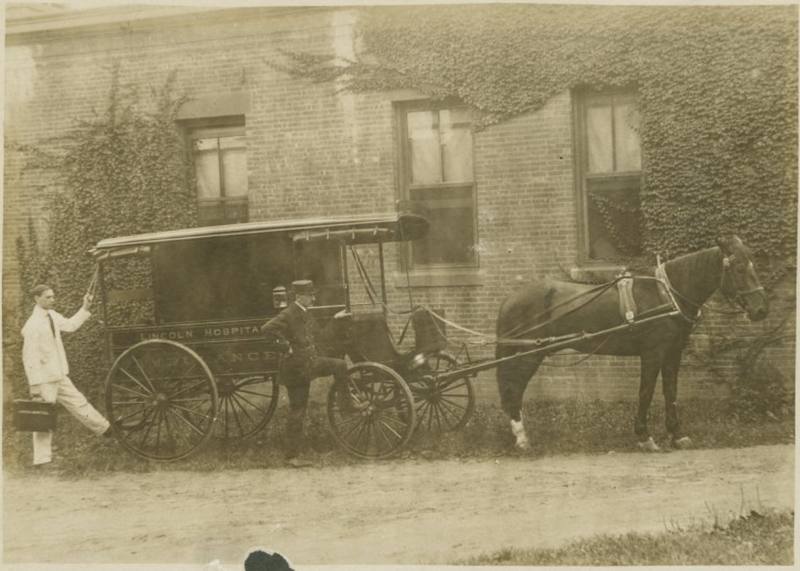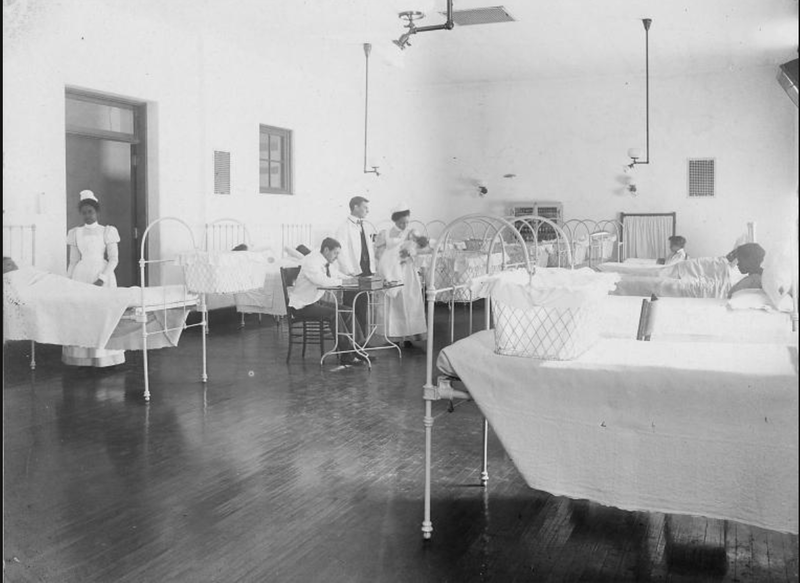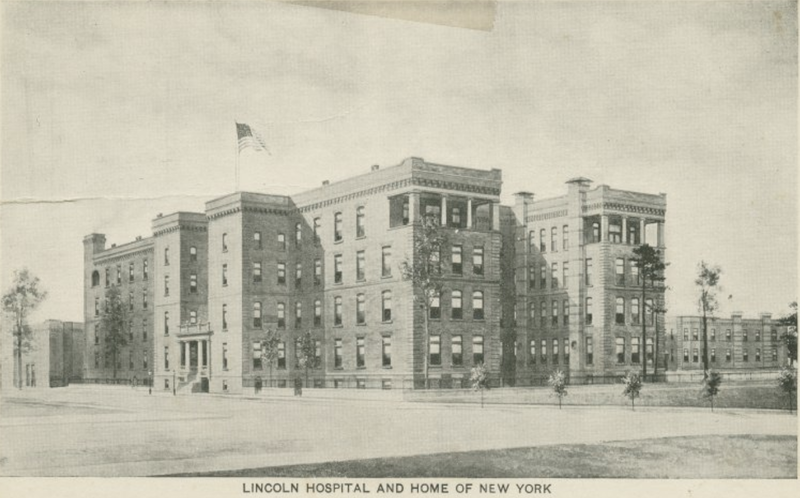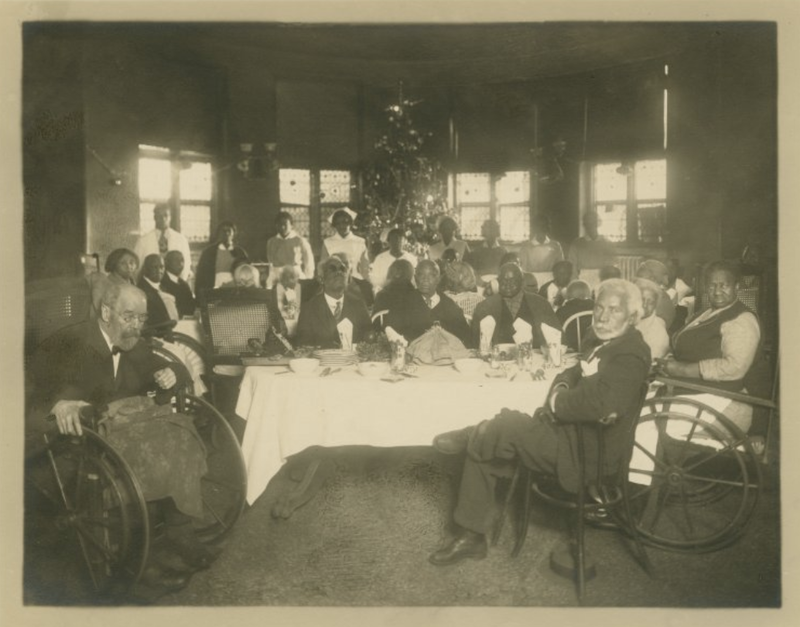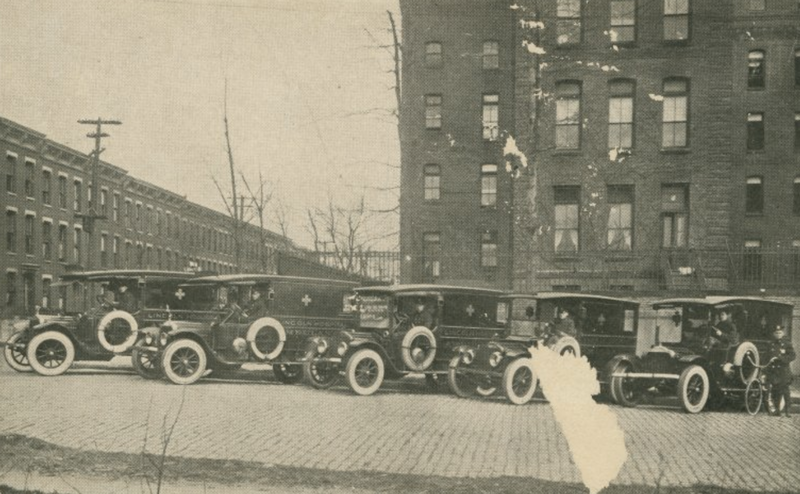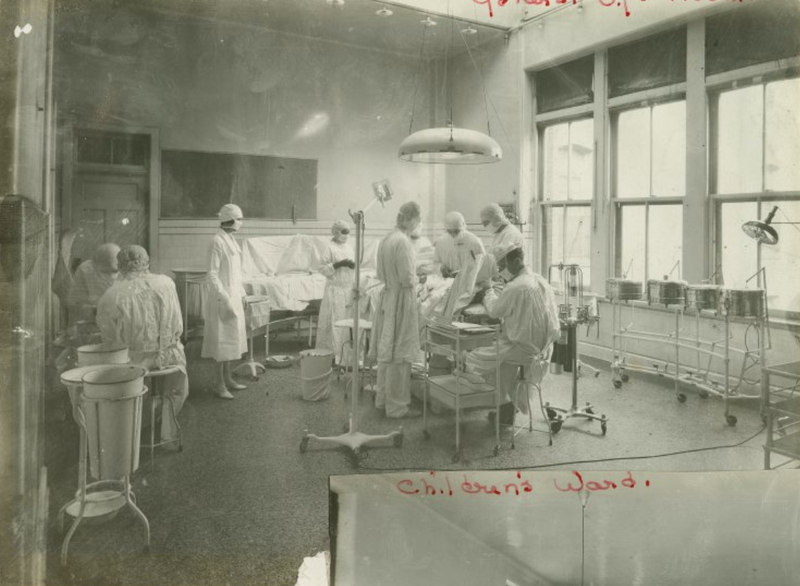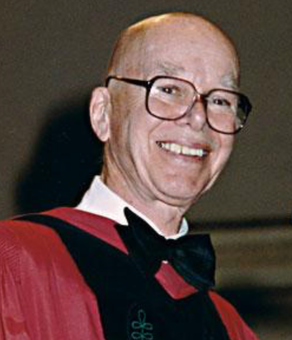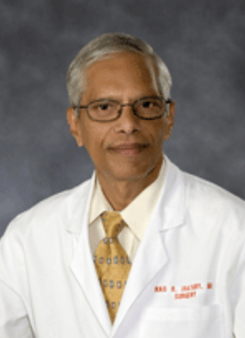History
Founded in 1839, the facility's original mission was to serve as a home for aged African Americans, many of whom had been slaves prior to the abolition of slavery. In 1902, the hospital moved from Manhattan to the Bronx and became known as the "Lincoln Hospital & Home" in honor of President Abraham Lincoln.
Although initially founded for the black community, the hospital eventually opened its doors to everyone.
Over the next 100-year period, Lincoln underwent several major expansion projects to accommodate an increasing patient population and changes in healthcare needs. In 1970, the Young Lords, a group of activists, occupied the hospital to protest the city's indifference to the health and social conditions of the community. In 1976, the current 362 bed facility was opened.
Although initially founded for the black community, the hospital eventually opened its doors to everyone.
Over the next 100-year period, Lincoln underwent several major expansion projects to accommodate an increasing patient population and changes in healthcare needs. In 1970, the Young Lords, a group of activists, occupied the hospital to protest the city's indifference to the health and social conditions of the community. In 1976, the current 362 bed facility was opened.
With much gratitude to the foundation of the Department of Surgery at Lincoln Hospital.
|
William "Bill" Stahl, MD, FACS, FCCM
Dr. Stahl was the cornerstone of the Department of Surgery at Lincoln Hospital. He worked within the NYC public hospital system from 1966 to 1998, the latter part of which he served as Chief of Surgery at Lincoln Hospital.
Dr. Stahl believed that good surgical care should be available to everyone and that public hospitals should have the same standards as the private sector. He always referred to the public hospitals as “Medical Camelot”. By this he meant that three basic tenets of medicine - excellence in patient care, education, and research – could and should be practiced on a daily basis. Along with Dr. DelGuercio, Dr. Stahl was one of the cofounders of the specialty of Surgical Critical Care. He was an avid researcher and a prolific publisher. He made seminal contributions to the field of trauma and critical care. He championed the specialty of general surgery and trauma before “acute care surgery” had a name. Dr. Stahl always approached everything in a calm manner. He had a gift for data analysis. He was the true definition of a chairman – he always seemed to have the right answer when no one else did, he could help you in the operating room in a crisis, and he was always a gentleman when doing it. His curiosity had no bounds. Dr. Stahl always advocated for a diverse surgical team. His staff and residents were multicultural. He supported women in surgery before it was even a discussion. He was a mentor to underprivileged high school students through the PREP program. Many went on to medical school and even joined his residency program. Dr. Stahl had many interests outside of surgery. He had a family, he loved the ocean and was a conservationist, he played the clarinet and saxophone, and he was an avid skier. He was a true renaissance man. |
Rao R. Ivatury, MD, MS, FACS, FCCM
Dr. Rao Ivatury was instrumental in developing trauma and critical care not only at Lincoln Hospital, but internationally. His passion for the field comes down to the most basic principle: care and respect for the injured patient. He dedicated his textbook on Penetrating Trauma to his patients and their caregivers.
Dr. Ivatury spent two decades at Lincoln Hospital in the South Bronx starting in the 1970s. This was an extremely violent time and the victims of severe trauma were innumerable. Dr. Ivatury trained at Lincoln Hospital as a surgical resident and Dr. Stahl eventually appointed him as Chief of Trauma. Dr. Ivatury is a great clinician, technical surgeon, intensivist, teacher, mentor, and researcher. After he left Lincoln Hospital, he became the Chair of the Division of Trauma, Critical Care and Emergency General Surgery at Commonwealth University (VCU) in Richmond and is now a Professor Emeritus in the Department of Surgery. He is a prolific publisher. Along with Dr. Gene Cayten, he co-edited the only textbook on penetrating trauma. At last count, he has 330 publications, 100 abstracts, 40 chapters, and four textbooks to his credit. He was amongst the pioneers of the concepts of “Damage-control” surgery, open abdomen, abdominal compartment syndrome, and tissue specific end-points of resuscitation, amongst many other topics. Dr. Ivatury has given more than 500 invited presentations nationally and internationally. He was Vice-President of the American Association of Surgery of Trauma, Past President, and current Executive Director of the Pan-American Trauma Society (PTS) and the World Society of Abdominal Compartment Syndrome. Dr. Ivatury is also on the editorial board of multiple leading medical journals in his specialty and is the editor-in-chief of the Pan-American Journal of Trauma, Critical Care, and Emergency General Surgery. In October 2019, he was inducted into the prestigious Academy of Master Surgeon Educators of the American College of Surgeons. Dr. Ivatury is known for his humility. He is a great mentor to medical students, residents, attendings, nurses, and colleagues, even in his retirement. |

